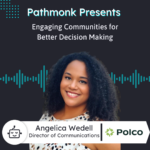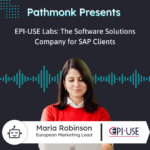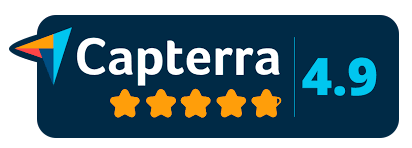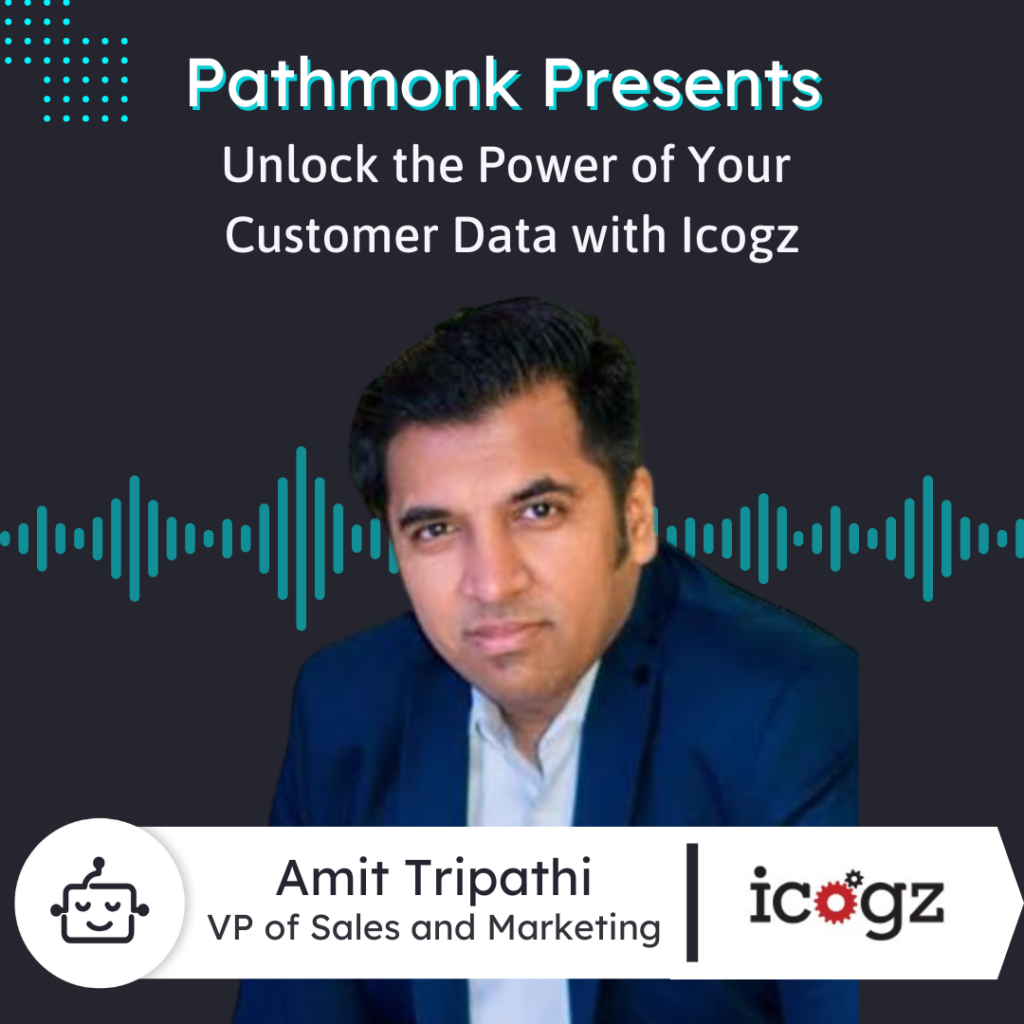
Introduction
Amit Tripathi, Managing Director of Icogz, joins the show to discuss the challenges businesses face in working with data. Icogz is a data science platform that helps businesses understand and utilize their data to make informed decisions.
Amit dives into the problems Icogz solves, including unifying disparate data sources, cleaning and managing legacy data, and providing real-time insights. He also shares how Icogz helps businesses in various industries, such as retail and BFSI, unlock the power of their customer data.
He concludes by sharing valuable advice for marketers, emphasizing the importance of getting customer feedback early and often through selling prototypes and minimum viable products (MVPs).
More Sales From Your Website With AI
Personalized interactions based on your users' behaviour to get +50% more conversions.
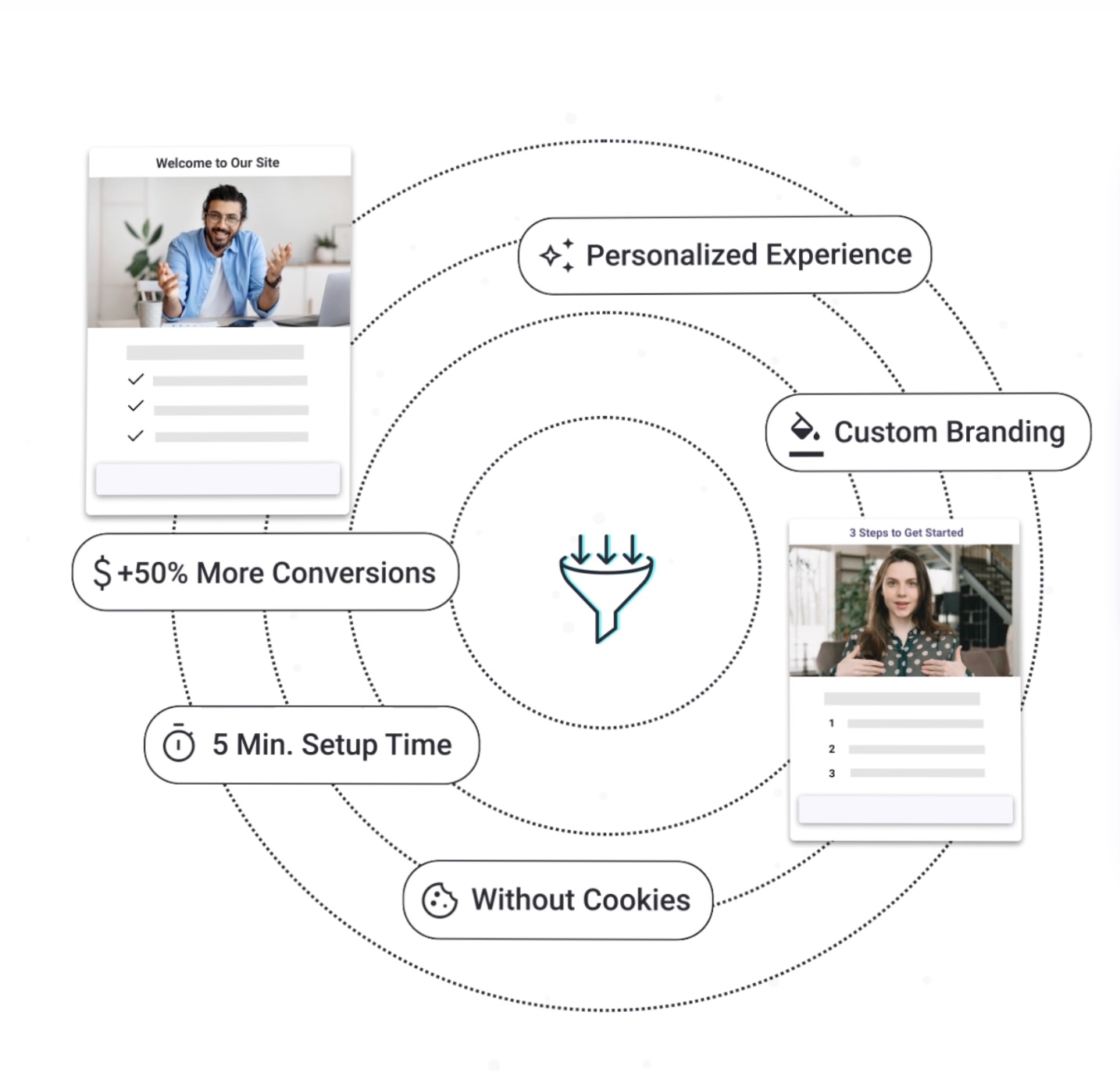
Ernesto: Pathmonk is the intelligent tool for website lead generation. With increasing online competition, over 98 percent of website visitors don’t convert. The ability to successfully show your value proposition and support visitors in a buying journey separates you from the competition online. Pathmonk qualifies and converts leads on your website by figuring out where they are in the buying journey and influencing them in key decision moments for relevant micro experiences.
Like case studies, intro videos, and much more. Stay relevant to your visitors and increase conversions by 50%. Add Pathmonk to your website in seconds. Let the AI do all the work and get access to 50 percent more qualified leads while you keep doing marketing and sales as usual. Check us on pathmonk.com.
Welcome to today’s episode. Let’s talk about today’s guest. We have Amit from Icogz, Managing Director. How are you doing today, Amit?
Amit: Good morning, and it’s lucky to meet you all. Well, it’s been a great day so far, and I think with Pathmonk, you know, it should be a great day now.
Ernesto: Definitely. Thanks so much for that. Glad to be on today’s episode here with you. Well, let’s take it off for our listeners to get a little bit more knowledge of what Icogz is all about. Can you tell us what it’s all about?
Amit: Lovely. So, thank you, first of all, for having us over. Icogz essentially is a data sciences platform. It’s a system that builds an AI-powered machine learning system that we’ve taken the last four years to build. It’s a product which essentially helps businesses and business leaders work with data. You know, we live in a world today where data is like science. It’s everywhere.
Top of the funnel, bottom of the funnel, mid-funnel, we all have data. But one of the biggest challenges that we found people struggling with is, how do you bring all of this disparate, disjointed data together, and how does it all work together? That’s what we do at Icogz. We bring this AI system, which essentially works with structured, semi-structured, and unstructured data, brings it all together, and converts it into actionable intelligence, actionable insights that then business leaders could work with and convert that into business decisions that we take in real-time. So, that’s what we do. We’re very passionate about what we do. We’ve built the entire system over four years, as I said. And, at this point in time, we’ve applied for about 13 patents. We’ve been issued about four of them, and nine are under the stages of Q&As that we’re going through. But we’re very hopeful that we’ll get all 13.
Ernesto: Definitely an awesome goal. Well, great to hear that from you guys. I mean, all that data and information is always, you know, one of the most hectic things for a marketer or for anyone in the business, so definitely great that you guys are doing that. And so, maybe for our listeners who are tuning in to get a good understanding of your company, what would you say is a key problem you solve for clients?
Amit: Like I said, right, every organization, no matter the size, a mid-sized organization and a large-sized organization, everyone generates data, right? Now, if you went by what KPMG or BCG or McKinsey have published in various reports, two problems are rampant across organizations. One, how do I bring all my data together, create one unified, harmonized view of this data that I can see? Because today, data resides in silos. We’ve created financial systems, inventory management systems, marketing systems, CRMs, loyalty systems. These are all independent tools that exist. And therefore, one big oversight view of this data is one challenge that organizations and leaders face. Number one. Number two, when you’re working with legacy systems, if you go to larger organizations, they’ve built systems over the last few years or decades, maybe. And when you’re trying to marry legacy systems into more modern-era, modern-date systems, one of the biggest challenges that comes in is the cleanliness of this data, the timeliness of this particular data, and then how we, therefore, make that work for you in one cohesive format. That is exactly what our system solves. That’s exactly what we, as a problem statement, solve for our organization or clients that we work with. Whether it is some of the big four consulting firms who are outsourcing their work to us, and we are handling this on behalf of their clients, we work with one of the largest beverage brands in the world. We handle that for them in India. We handle that for one of the largest dental care brands, and we handle that in India and the Middle East. We’re working with one of the largest Middle Eastern banks, helping them make sense out of their entire branch, banking, credit card portfolio, your debt portfolio that they have. Working for the sports brand right now, which is a club essentially based out of Saudi Arabia and trying to bring them, you know, to work with their data, which is customer needs data that they work with. And when you marry all of this together, we are helping them make decisions in real time, which otherwise would have taken them a week or 10 days or so to collate, assimilate, and then start interpreting and analyzing data sets. We’ve almost made all of this data real time for some of these clients.
Ernesto: Great. Great to hear that. And I mean, you were mentioning right now some of the industries that you guys go for, BFSI, FMCG, but is there a vertical that you guys like to go for? Is there an ideal ICP for Icogz?
Amit: Retail brands, right? We love retail brands, right? Brands who have a physical presence, they’ve got stores, they’ve got their own e-commerce sites, which are working for them, who are present on marketplaces such as Amazon and selling or reselling on these particular platforms, or who have shop-in-shop presence in various malls, various stores. Now they have disjointed, disparate systems, right? The bigger the chaos, the better the two, right? And that’s what we do. We love chaos, right? And we try and put method to that entire madness that comes in. So we love retailers. We love BFSI brands, especially the brands that have a lot of branches and they do a lot of branch banking or branch-based engagements and interactions. We love working with them because they have a bigger problem statement to solve. And therefore, the immediacy of solutions, the immediacy of answers and learnings that they want, that’s where we thrive. So that’s one category that we really love.
Ernesto: Awesome to hear that. And so then how would some of the retail companies or some of the BFSI companies usually find out about Icogz? Is there a top client acquisition channel for you guys?
Amit: So currently, as I said, we spent about four years building this entire platform. We’ve started monetizing Icogz in terms of client engagements just over the last eight to 10 months. So we’re very fresh in the market. Our website and our social channels have been amazing in terms of our lead gen funnel. Most of our inquiries, about 40-45 percent in terms of volume, come from our website and our social channels. The remaining comes from our participation in events, a lot of referrals in terms of clients that we know, brands that we work with, associations that we have. And our most favorite tool, LinkedIn, right? So connections with various folks in the industry, like, you know, we’ve got an office in Ontario, Canada. We’ve got an office out of Milton Keynes in the UK. We’ve got an office out of Dubai in the UAE. We’ve got an office out of Mumbai and Delhi in India. We’re setting up an office in Singapore to cater to the Southeast Asian market. So then participation in events, connecting with professionals in those markets, and, you know, I’ve done this for only about 25 years, content marketing, right? Build a lot of use cases, build a lot of white papers, share a lot of content and learnings with brands. And you’ll be surprised how content really plays an amazing role in lead generation for large B2B brands who are looking out for solutions such as ours, especially as a small company. When you’re going up against Salesforce and Datorama, you’ve got to definitely be coming up with a solution that really, really makes a difference in their lives, and that’s worked for us.
Ernesto: Awesome. And for our listeners who are tuned in to check you guys out, you can always visit them at icogz.com. What role does the website play for client acquisition, Amit?
Amit: Three roles currently, right? It’s our first point of contact. You want to know about us. You want to know about the promoters. You want to know about the people behind it. That’s our website. You get there, you see what we have. It also acts as our lead gen landing page. It’s the destination where all our campaigns bring the audience to various use cases or various use pages, and we use that in terms of our drip marketing funnels as well to share a lot of our content in terms of case studies and blogs. It’s currently the placeholder where all of our data and intelligence that we are creating is being aggregated. Again, still in its infancy, we’ve currently been using LinkedIn for a large amount of long-form content dissemination, but now we’re working on a system where we’ll be integrating all of our content and blogs on the website as well. So that’s the journey that we’re undertaking right now.
Ernesto: Awesome to hear that. And as far as any tips or tools or methods that you recommend to our listeners for website lead generation, do you have any?
Amit: A couple of things, right? Especially in the B2B space, when you’re selling to established businesses, there is a funnel. It’s not the same shoe size that fits everyone. So you need to be creating the right, relevant content across industries, segments, and sectors. If you don’t do that, you’re targeting the wrong audience most of the time. What one should really be doing when it comes to B2B marketing is making sure that the kind of content you create is heavily customized for the particular sector you’re going after. Like you asked me a question, which is our sweet spot, and I spoke about retail. Now, retail itself can be divided into multiple subcategories, right? Pure play e-commerce brands, pure play offline retailers, divided by product lineups like fashion retail, electronics retail, pharmacies, or medical retail. Each of these have very different problem statements, and what works for fashion may not work for pharmaceuticals, for example. Therefore, custom data, making your solutions, your communications, your content, and taking it to those audiences is worth its weight in gold. Even if you get one client out of a large investment that you’ve done, it will more than pay for itself going forward. And that’s what we’re doing at this point in time. We’ve got close to about 20-odd use cases and close to about 40-45 white papers that we disseminate to our clients and audiences across the entire drip marketing funnel. First contact, second contact, rejection, reminder after three months, reminder after six months. How do you go through the funnel to keep them abreast of what’s happening with you? So we’re going through the entire long tail process of keeping our prospects and the brands who rejected us into our funnel so that a lead generated once should never go out of their system. You never know. They might come back a year later. So that’s our philosophy of working with our leads. We put a lot of emphasis and value on the leads we generate.
Ernesto: Great insights there from you. Well, let’s switch gears a little bit, Amit. Let’s talk about you being the leader there for Icogz, being the managing director, founder, CEO, everything in one. What are some key tasks you focus on in your day-to-day work?
Amit: Over a period of time, my role has changed. When we started off as a startup, today we have 40-45 odd people, and this is only the dev and data sciences team based out of India. The role was to help evangelize the product, come up with ideas, innovations, solutions, think about the entire architecture and framework of the platform. In the initial days, it was more about product. It was about getting my team to think about and evangelize the use case of the solutions internally. Now, over the last year, as we’ve taken the product to market, my role has evolved. I am more of the storyteller, presenting customized solutions to clients, doing brainstorming sessions with them, coming up with problem statements that they find difficult to identify based on their data, and converting that into a solution. Apart from the 40-45 odd people, we have a 10-12 member team talking to brands across industries and geographies. Once someone is warmed up, my role comes in, getting onto sessions and workshops, identifying how we can solve a particular problem, and then taking it to the next level. From evangelizing or helping my dev team and data science team understand the product vision initially, it’s now about teaching the same vision and platform intelligence to clients and narrating the story so they can appreciate what we bring to the table. So, nothing has changed; the audience has changed for me. I’m speaking to more E-board audiences in terms of CEOs and CXOs and to a lot of marketing managers and mid-tier professionals.
Ernesto: Definitely. I mean, it’s evolved. That’s what we like to hear. Well, let’s jump into our next section, Amit, which is our rapid-fire question round. Are you ready for them?
Amit: Yes. Let’s go.
Ernesto: All right. First off, Amit, what is the last book that you read?
Amit: I’m currently reading a book called “The Outsiders.” It’s about CEOs and valuations, and how value has been created within organizations. Amazing book. I’m still on the first chapter. Prior to that, I was reading a book about our Prime Minister in India, Mr. Modi, and what he’s doing in terms of building digital highways within India. That was a fascinating read as well.
Ernesto: Great read there for our listeners. Next up, what is one single thing that your company is focused on the most at the moment?
Amit: We believe that data is like fish and not like wine. It rots faster, doesn’t age better. The relevancy of data is today. We are helping brands focus on understanding the value of data in real-time and how to put it to better use using AI systems.
Ernesto: Perfect. Also, if there were no boundaries in technology, what would be that one thing that you want to have fixed for your role as a marketer today?
Amit: That’s a tricky one. I have too many of them. I need a lot of solutions and support. If there was a way to make large language models more accessible to developers and understood by developers, and speed up the entire dev process in terms of implementing that across data sets like ours, I’d love for that to be our focus.
Ernesto: Awesome. Lastly, Amit, I love this question, especially for someone with so much experience like yourself. What is one piece of advice that you would give yourself if you were to restart your journey as a marketer today?
Amit: I keep saying this to everyone today. I spent four years building the product. That meant I built first, and now I’m going out selling. I would rather have tweaked it a little bit and sold first, then developed it. Sell first or do it in parallel. The ideal way would be to keep your buildups going, build your product, but don’t try to build the entire ecosystem on day one. It’s not going to be possible. Don’t wait for a perfect product. It’s not going to come. If your product has reached perfection, you’ve stalled out; you’ve reached your plateau. You’re not going to grow because the product is going to evolve continuously. What you need to do is while you’re building it, keep selling. There’s no reason why you can’t sell a prototype or a beta version. Even if that means selling it at a pittance, do it because there’s no better learning than customer feedback. Today, a lot of stuff we’re changing is based on live feedback. I wish I would have sold it about two years ago, and I would have saved at least three or four months of dev time in terms of changes I’m doing now on the product.
Ernesto: Definitely some great advice. I think everybody wants to get to that perfection, but as you mentioned, if you just work on it without selling, it’s not growing. Definitely great advice there. Well, Amit, I want to thank you for being on the show with us today. We’re coming to an end here, but I want to give you the last word. If someone forgets everything about the interview today, what is that one thing they should remember about Icogz?
Amit: We’re a data sciences firm. If you want to make your data work for you, talk to us. Free consulting. I’m not going to charge you anything for that. If that helps make sense of your data requirements, we’d be more than happy to custom-make solutions for you and provide the power of AI without putting a hole in your pocket.
Ernesto: You guys heard it there. You can always visit them at icogz.com. Actionable business insights. To our listeners, thank you so much for tuning in, and looking forward to our next episode at Pathmonk Presents. Thanks a lot, Amit.
Amit: Thank you so much, Ernesto. Pleasure.




